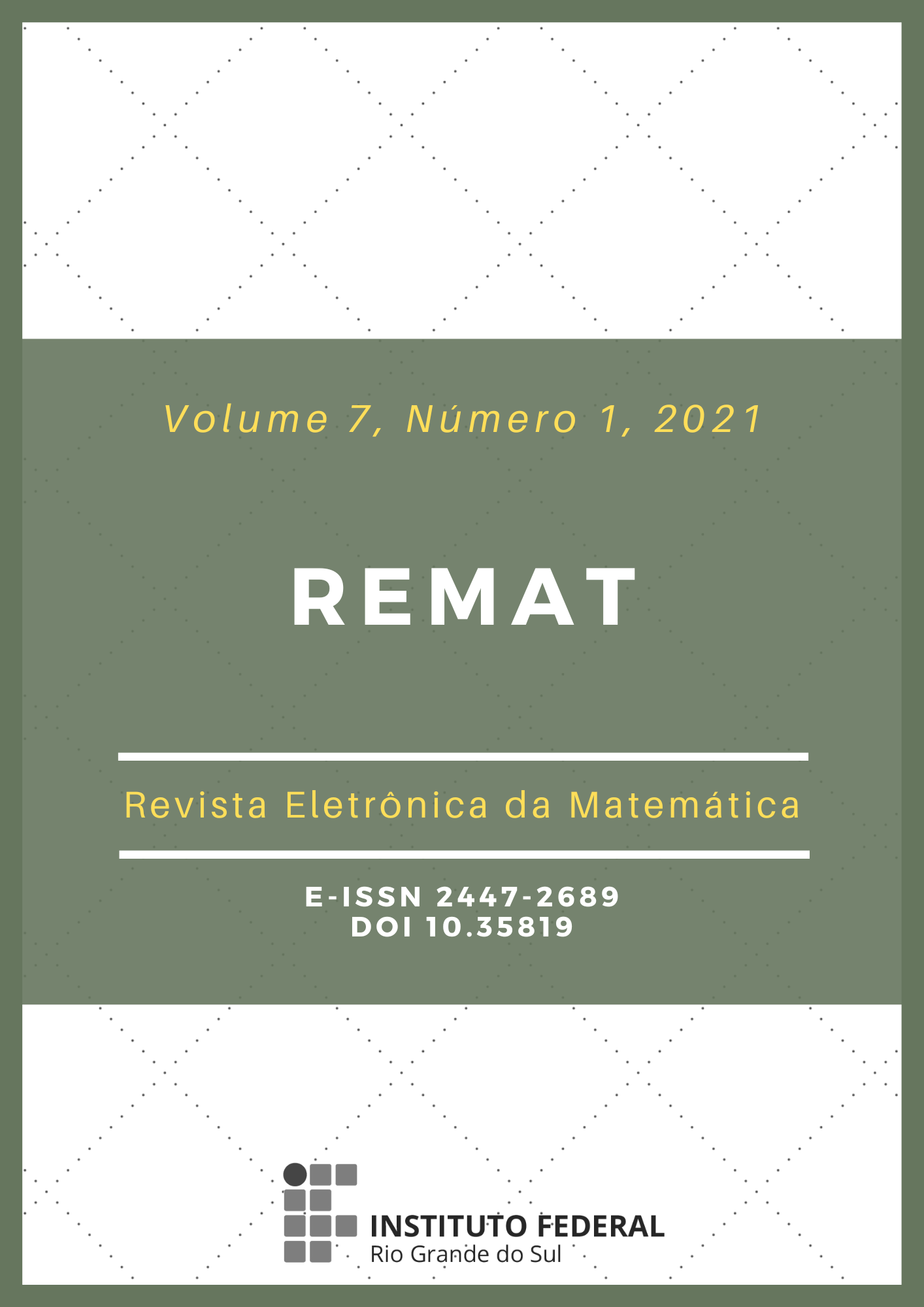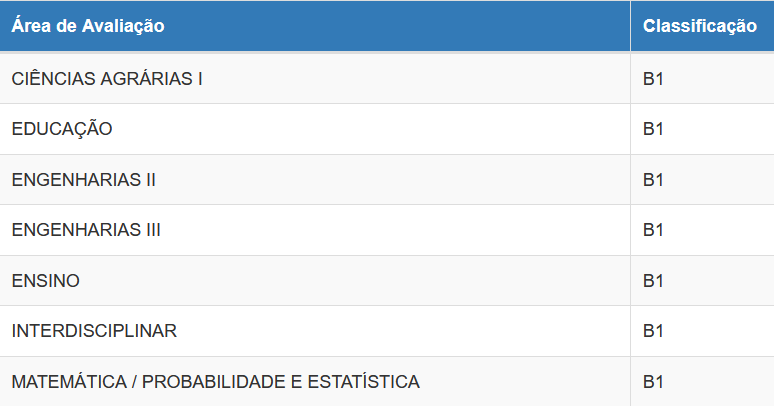Systematic review of researches for the identification of STEM skills using cross-categories analyzing
DOI:
https://doi.org/10.35819/remat2021v7i1id4332Keywords:
Mathematical Skills, STEM Modeling, STEM Problem ResolutionAbstract
Studies on mathematical, scientific and technological skills associated with STEM (Science, Technology, Engineering, Math), which are manifested by teachers and students, involve a constant recollection of antecedents; for this reason, this research focuses on applying a methodology that allows searching for articles on this topic at a period of five years. Search and categorization questions are asked, thus obtaining analysis from the crossing of categories. It's aimed to classify the information and identify the skills, where each of them is studied from a disciplinary articulation perspective: A) Mathematics / Science, B) Mathematics / Technology, C) Mathematics / Engineering and D) Mathematics / Science / Technology, also highlighting if the gender perspective is addressed in this type of classification. The study is based on the implementation of the systematic review process, whose database was generated with a selection of articles in Web of Science, Journal of Education Research, and Springer, analyzed by inclusion and exclusion, obtaining 42 final articles from 127. The findings showed a global view that allows to determine the need to generate new research and results that consider the analysis of the proposed categorizations in mathematics education currently addressed separately.
Downloads
References
ARAVENA, M.; CAAMAÑO, C.; GIMÉNEZ, J. Modelos matemáticos a través de proyectos. Revista Latinoamericana de Investigación en Matemática Educativa, v. 11, n. 1, p. 49-92, mar. 2008. Disponible: https://www.redalyc.org/articulo.oa?id=33511103.
BLUM, W.; NISS, M. Applied mathematical problem solving, modelling, applications, and links to other subjects - State, trends and issues in mathematics instruction. Educational Studies in Mathematics, v. 22, n. 1, p. 37-68, feb. 1991. DOI: https://doi.org/10.1007/bf00302716.
BREDA, A.; SECKEL, M. J.; FONT, V.; PINO-FAN, L. Concepciones de profesores chilenos sobre la creatividad matemática. Acta Latinoamericana de Matemática Educativa, v. 31, n. 1, p. 690-697, 2018.
CASIS, M.; RICO, N.; CASTRO, E. Motivación, autoconfianza y ansiedad como descriptores de la actitud hacia las matemáticas de los futuros profesores de educación básica de Chile. PNA, v. 11, n. 3, p. 181-203, abr. 2017. Disponible: https://dialnet.unirioja.es/servlet/articulo?codigo=6110868.
CHAMORRO, M. C.; BELMONTE, J. M.; LLINAREAS, S.; RUIZ, M. L.; VECINO, F. Didáctica de las matemáticas para primaria. España: Pearson Educación, 2003.
HALLSTRÖM, J.; SCHÖNBORN, K. J. Models and modelling for authentic STEM education: reinforcing the argument. International Journal of STEM Education, v. 6. n. 22, 28 jun. 2019. DOI: https://doi.org/10.1186/s40594-019-0178-z.
KITCHENHAM, B.; CHARTERS, S. Guidelines for performing systematic literature reviews in software engineering. UK: Thechnical Report EBSE, 2007.
KITCHENHAM, B.; BUDGEN, D.; PEARL BRERETON, O. Using mapping studies as the basis for further research - A participant-observer case study. Information and Software Technology, v. 53, n. 6, p. 638-651, jun. 2011. DOI: https://doi.org/10.1016/j.infsof.2010.12.011.
NICOLÁS, C.; URRUTIA, A.; VALENZUÉLA-FERNANDEZ, L.; GILLAFUENTE, J. Systematic mapping on social media and its relation to business. European Research on Management and Business Economics, v. 24, n. 2, p. 104-113, mayo-ago. 2018. DOI: https://doi.org/10.1016/j.iedeen.2018.01.002.
OCDE. Organización para la Cooperación y el Desarrollo Económico. PISA 2006: Marco de la evaluación - Conocimientos y habilidades en Ciencias, Matemáticas y Lectura. Madrid: Santillana Educación, 2006. Disponible: https://www.oecd.org/pisa/39732471.pdf.
OECD. PISA 2012 Results: Creative Problem Solving: Students’ Skills in Tackling Real-Life Problems. v. V. Paris: OECD Publishing, 2014. DOI: http://dx.doi.org/10.1787/9789264208070-en.
PETERSEN, K.; FELDT, R.; MUJTABA, S.; MATTSSON, M. Systematic mapping studies in software engineering. In: VISAGGIO, G.; BALDASSARRE, M. T.; LINKMAN, S.; TURNER, M. (Eds.). EASE’08: Proceedings of the 12th international conference on Evaluation and Assessment in Software Engineering. Italia: Association for Computing Machinery, jun. 2008, p. 68-77.
RITZ, J. M.; FAN, S.-C. STEM and technology education: International state-of-the-art. International Journal of Technology and Design Education, v. 25, n. 4, p. 429-451, 2015. DOI: https://doi.org/10.1007/s10798-014-9290-z.
SCOTT, J. El género: una categoría útil para el análisis histórico. In: LAMAS, M. (Comp.). El género, la construcción social de la diferencia sexual. México, DF: PUEG, 1996, p. 265-302.
THOMPSON, A. Teachers’ beliefs and conceptions: A synthesis of the research. In: GROUWS, D. A. (Ed.). Handbook of research in mathematics teaching and learning: A project of the National Council of Teachers of Mathematics. Nueva York: Macmillan Publishing Co, Inc, 1992, p. 127-146.
VILLA-OCHOA, J. A.; ALENCAR, E. S. de. Un paronama de investigacióes sobre modelación matemática en Colombia y Brasil. Revista de Educação Matemática, São Paulo, v. 16, n. 21, p. 18-37, ene./abr. 2019. Disponible: https://www.revistasbemsp.com.br/index.php/REMat-SP/article/view/215.
ZAPATA, M. A.; BLANCO, L. J.; CAMACHO, M. Análisis de las Concepciones de los Estudiantes para Profesores sobre las Matemáticas y su Enseñanza-Aprendizaje. Bolema, Rio Claro (SP), v. 26, n. 44, p. 1443-1466, dic. 2012. DOI: https://doi.org/10.1590/S0103-636X2012000400015.
Downloads
Published
How to Cite
Issue
Section
License
Copyright (c) 2021 REMAT: Revista Eletrônica da Matemática

This work is licensed under a Creative Commons Attribution 4.0 International License.
REMAT retains the copyright of published articles, having the right to first publication of the work, mention of first publication in the journal in other published media and distribution of parts or of the work as a whole in order to promote the magazine.
This is an open access journal, which means that all content is available free of charge, at no cost to the user or his institution. Users are permitted to read, download, copy, distribute, print, search or link the full texts of the articles, or use them for any other legal purpose, without requesting prior permission from the magazine or the author. This statement is in accordance with the BOAI definition of open access.

































